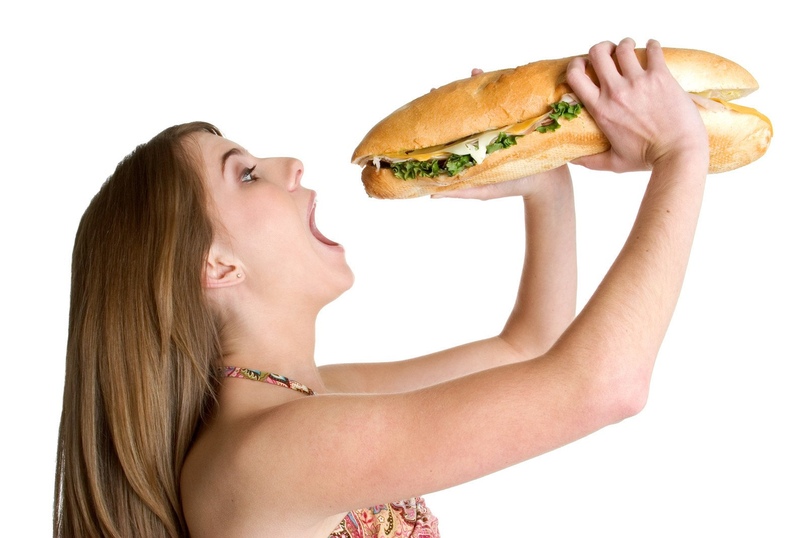Kryptonite and carbs at night
A classic and popular belief in our industry is a carbohydrate panic at night, like garlic for Dracula or kryptonite for Superman: whatever lifestyle, diet, exercise you follow …
carbohydrates at night = parrots are insured.
And this is what “everyone” knows this if you dine on a fat CARBOS … moreover, it would be best to remove them after 4:35 pm in the afternoon, although, the most reckless, I dare to 18: 13 pm !!
Why is this nonsense?
There are usually two pseudoscientific explanations behind this belief …
The first and most common at the popular level is related to calorie intake:
Enter “so much energy” before bed! and it will be turned into fat. This is because when we sleep our body goes into a “half-time-comatose” state with zero consumption … right? Of course not! In fact, our metabolic costs during sleep are almost identical to those during inactive activities (such as sitting at a computer). In fact, adding 60-70% of basic organ costs (liver, heart, brain, kidneys) to 10% of specific dynamic action (what we spend on the simple fact of digesting what we eat), we find that up to 80% what we spend on life. Physical activity accounts for only up to 20% of total metabolic expenditure (only 600 calories with a metabolism of 3000), so remember these numbers the next time you try one of your “culinary orgies”.
The second, most popular among the sages, is related to the production of hormones:
Carbohydrate intake at night, natural production at night, and peak growth hormone (the most lipolytic hormone in antagonism with insulin) will be greatly reduced, so we will block weight loss. It is a shame that circadian hormonal changes in people who do not use exogenous steroids are not significant enough to significantly alter body composition.
“But I lost weight by removing Carbos at night”, many will say …
Of course! Because by doing so, you have reduced your total calorie intake and your total carbohydrate intake. With the ratio of calories to total carbohydrate intake, the differences between intake at one time or another are minimal and invaluable. Demonstration you are doing with Intermittent Fasting or Warrior Diet people who cook one meal at night … they must all be obese, right?
But the most interesting thing about the hormonal theory is this: if GH is produced at low glycemia, and carbohydrates stimulate INSULIN, which, in turn, causes reactive hypoglycemia (drop in sugar), the consumption of carbohydrates with a high glycemic index should have a corresponding peak growth hormone BASIC … Not worse !!?
So WHAT IS THE TRUTH?
Do you have the ability to MEASURE hormonal fluctuations after each meal? NOT? So, we are talking about “fried air”! Like parrots, we repeat the simplistic and conspiracy theories that have enriched hundreds of bestselling writers … a bit like religious studies with their Bibles. But science has nothing to do with faith !!

There are actually at least 3 reasons why we can eat carbs at night:
- Carbohydrates increase the activity of the parasympathetic system and promote the release of serotonin (the precursor of melatonin), thereby causing drowsiness and improving sleep quality. (Remember this when you need to be awake and active.) Sleep quality has been shown to be a long-term determinant of changes in body composition, mood and memory. A recent study by the National University of Singapore showed that ONE more hours of sleep per night raises testosterone levels by 12%, which, when demonstrated with a sports supplement, would make it the most depleted product in all stores … Mental note: Sleep is “free.” >
- They stimulate the production of leptin the day after an overnight meal (a hormone produced primarily by fat cells whose main function is to regulate appetite). In healthy people, this leads to a better body composition, while in people with leptin resistance, where this hormone cannot perform its function correctly (usually in overweight people), it has the opposite effect (increased appetite) and leads to increased insulin resistance.
- Reducing cortisol levels at night leads to improved insulin sensitivity.
In addition, we must know that it takes the body 3-4 days to realize that it is entering fewer calories than it consumes, so only after 3 or 4 days of a low calorie diet, leptin (regulating metabolism) begins to decrease. Likewise, in healthy and thin people, excess calories for 24-36 hours (especially if it is glycidal) does not increase fat, but simply increases the amount of glycogen and water (obviously this is not the case in subjects with insulin resistance who gain much more weight). lightness.
In fact, the rapid weight changes that are monitored throughout the day are solely related to water and glycogen, as each gram of carbohydrate captures 2.7 grams of water for storage (for example, 100 grams of rice would force us to lift about 300 grams on the scale.
Therefore, the WEEKLY variations are much more reliable for monitoring fat loss or muscle gain. The recommended rate of physiological weight loss is 0.5-1% weight loss per week (more is NOT better !!)
CONCLUSIONS:
The best time to consume more carbohydrates will always be AFTER TRAINING, when glycogen stores are depleted and insulin sensitivity persists for up to 2 hours and then gradually decreases. WEIGHT LOSS or FAT GAIN is related to WEEKLY calorie and macronutrient intake, NOT what we do on Monday night or Friday morning.
In short, if you exercise in the morning, eat most of the high glycemic index carbs for lunch, and if you exercise in the afternoon, eat them for lunch.
End of problem.


